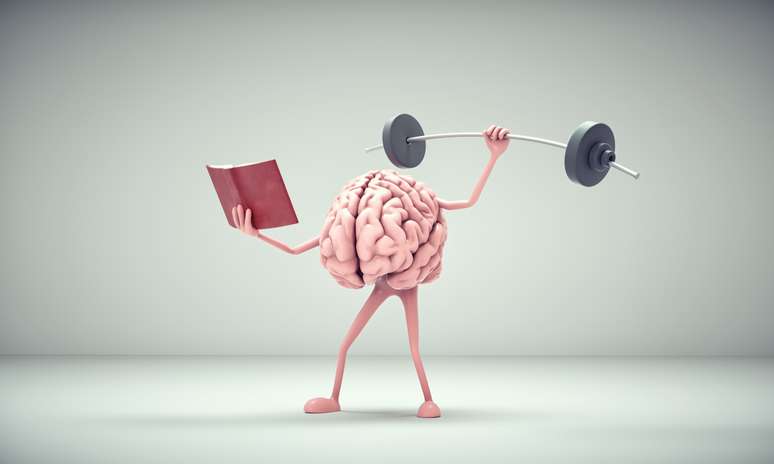Regular physical activity improves memory, attention and reasoning
When we talk about physical activity, we immediately think of losing weight, gaining muscle mass and protecting our heart. But the benefits go far beyond physical appearance and heart attack prevention.
Regular exercise also significantly improves brain function, which involves not only attention and memory, but also the ability to learn. Do you want to better understand how this happens? See below how exercise helps your brain:
1. Focus your attention
Have you ever heard of the individual alpha peak (iAPF)? Probably never, unless your doctor has ordered tests to diagnose epilepsy or Alzheimer’s disease. The iAPF (part of the electroencephalogram test) measures your ability to concentrate and pay attention. According to studies, this indicator increases after intense exercise.
2. Memorize
Aerobic exercise such as walking, running or gardening can help the hippocampus of the brain, the part linked to memory and learning, to grow. They also help slow the shrinkage of this region, which tends to cause memory loss as we age.
3. Fight depression and anxiety
Aerobic exercise relieves symptoms of depression and anxiety so well that your doctor or therapist may suggest it as a treatment. This is because exercise slows down the damage and degradation of brain cells. It may take many months to get the full benefits, so get into the habit of being active.
4. Regenerate
Neuroplasticity is the brain’s ability to change as you learn and try new things. Younger brains are generally better than older ones at this, but even those of the same age can have very different abilities. Scientists believe that both aerobic exercise and weight training appear to help make the brain more flexible, or “plastic.”
5. Avoid dementia
Sedentary people are more likely to get Alzheimer’s disease and other forms of dementia. This is due, in part, to the fact that exercise helps prevent many dementia-related conditions, such as obesity, diabetes, hypertension and depression. But exercise also has a direct effect, scientists say: More white and gray matter in the brain and less diseased tissue are all signs of better brain health.
6. Get more nutrients
Aerobic exercise helps blood reach the brain. In part, that’s because exercise strengthens the heart and blood vessels, from the larger vessels that carry blood to the head to the tiny microvessels. Strong blood vessels – and the better blood flow they create – appear to help prevent dementia-related plaque buildup. Scientists also believe that strong blood flow helps nourish the brain to slow mental decline. Scientists continue to try to understand exactly how it works.
7. Think better
Research suggests that exercise improves the ability to organize, interpret information, and act in a way that makes sense: “executive function.” Just one training session can start the process. In the long term, regular physical activity appears to change the structure of the brain’s white matter in ways that help brain cells connect.
8. Sleep better
We know that exercise can help you maintain your mood, relax you before bed, and establish a healthy sleep-wake cycle (circadian rhythm). The exact effects on the brain aren’t always clear, but people who exercise more tend to get “slow wave” sleep, the deep type that helps revitalize the brain and body. And you may have already heard that some sleep stages work like a brain cleanser.
It does not take much
Standard recommendations call for 30 minutes of moderate exercise most days of the week. It’s a great way to start. But gradually doubling that amount can give your brain even more benefits. The duration of each individual session is also important. Research shows that some of the best benefits come from training sessions that last 45-60 minutes.
Source: WebMD
Source: Terra
Ben Stock is a lifestyle journalist and author at Gossipify. He writes about topics such as health, wellness, travel, food and home decor. He provides practical advice and inspiration to improve well-being, keeps readers up to date with latest lifestyle news and trends, known for his engaging writing style, in-depth analysis and unique perspectives.








